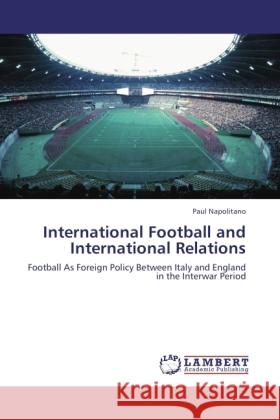International Football and International Relations » książka
International Football and International Relations
ISBN-13: 9783845473161 / Angielski / Miękka / 116 str.
The interwar period in Europe was marked by political, cultural, and social experimentation. New governing systems emerged, and adopted unique strategies to establish and maintain international prestige. On the European Continent, many of these governments harnessed the power of international sporting competitions as a method through which to further their political and social ideologies outside their borders. In Italy, in particular, Benito Mussolini embraced sport to create a culture of consent within the populace, endear them to his vision of a New Italy, and to propagate the strength of his Fascist government across Europe. Concurrently, the Italian national soccer team was surging to prominence in continental and international competition, proving itself to be one of the most formidable forces in international soccer. This surge placed Italy in direct competition with England, the originator as previously-unquestioned master of football. This clash of footballing cultures mimicked the political clash between fascism and democracy. Therefore, football matches between Italy and England in the 1930s became proxy battles in the struggle between democracy and fascism in Europe











